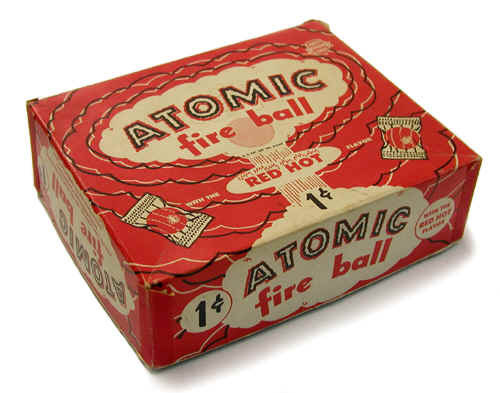Red Mercury Rising
 Thanks to my friend Steve Lynch, I've got a piece in the Sunday New York Post about red mercury, a semi-mythical substance that's either a way to make H-Bombs the size of hand grenades, or a cure for impotence.
Thanks to my friend Steve Lynch, I've got a piece in the Sunday New York Post about red mercury, a semi-mythical substance that's either a way to make H-Bombs the size of hand grenades, or a cure for impotence.
Doomsday weapon or herbal Viagra, the truth about red mercury hides in a tangle of rumor and speculation so twisted it makes the plot of "Lost" look straightforward. The apocalyptic goo has haunted us since the end of the Cold War, despite the fact that no one has ever proven it can actually do anything.
As tangled as the mythology is, red mercury had one big supporter to give it credibility: Samuel T. Cohen, the man who invented the neutron bomb. Cohen — who titled his memoir, Fuck You, Mr. President — died in Los Angeles two weeks ago.
I didn't get to put most of what I learned about him in the piece due to space limitations, but according to those who knew him, he was truly a fascinating man. One of the physicists who helped build the A-Bomb at Los Alamos, Cohen dedicated much of his life to the idea that the right weapon could limit war rather than prolong it.
The neutron bomb was Cohen's solution to the stalemate of the Cold War. Looking at the Soviets' overwhelming superiority on the ground in Europe, Cohen designed the neutron bomb to limit the damage in the aftermath of an invasion. A small warhead designed to be detonated above a battlefield, it saturated living things with lethal doses of radiation while leaving buildings and vehicles intact.
For his efforts, Cohen received a peace medal from Pope John Paul I – and vilification from nearly everyone else. Politicians feared it would escalate the arms race. No less than Nikita Kruschev called it a "capitalist weapon" for sparing real estate but killing people.
He believed his creation was "the most moral weapon ever invented," despite the nearly universal horror it evoked. And in some way, I do understand his confusion at the reaction the neutron bomb received. Blowing human beings to ash with regular nuclear weapons, or burning them with napalm, or shattering their skulls with shrapnel — surely all of that should be just as repulsive as killing them with gamma rays.
Almost nobody else saw it that way. Although President Ronald Reagan ordered 700 of the bombs built, they were never made part of the U.S. military arsenal and were dismantled after the collapse of the Soviet Union.
By the end of his life, Cohen had more or less given up on the idea of saving the world. He believed the only hope was for all nations to become so broke they wouldn't have the cash to fight wars.
Which, come to think of it, would be an interesting side effect of the financial crisis if it ever came to that.
But while Cohen was a few orders of magnitude smarter than I am, I just don't think it would work. Despite — or because of — the Great Depression, we still had World War II. In prosperity or poverty, we always seem to have enough money to buy bombs.
What's even more puzzling about Cohen's obsession with red mercury is that it doesn't even matter if the stuff actually exists. As one of the nuclear scientists I spoke to, Dr. Frank Barnaby, told me, there's no way we can realistically stop more people from getting nuclear weapons. In the future, pretty much every nation will have access to the technology. In terms of sheer probability, it's ludicrous to think that terrorists will not get their hands on a nuke.
While that's not a very cheery thought for a Monday morning, it does make me wonder why Cohen fought so hard to warn people. Maybe he was just trying to give us something we could handle. Maybe by sounding the alarm over red mercury, he hoped we'd pay attention to the real threats that are already out there.











